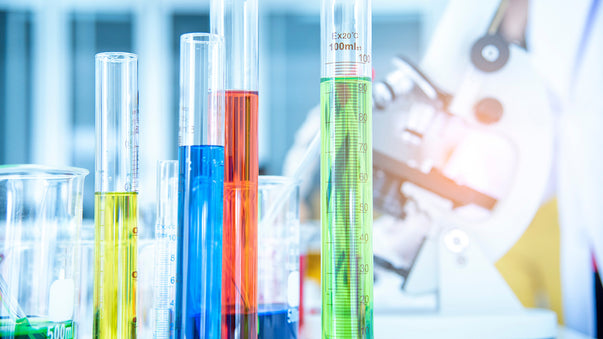Reactions to Neuralink Update

The Neuralink website has been revamped after the technology update released last week. Of course, the update has been widely covered by the press.
According to Wired, Neuralink technology “looks awesome.” The Neuralink device, with “sensors for motion, temperature, and pressure and 1,024 thin, flexible wires to pick up the electrical signals neurons put out while they’re neuron-ing,” is much better than the relatively crude tools used today by neuroscientists.
“Musk now has a device that’s at least 10 times better,” said Christof Koch, chief scientist at the Allen Institute for Brain Science, as reported by Wired.
Wired notes that, according to Musk, one day “Neuralink would be able to record and replay memories, even save them to an external drive and download them into a robot body. He said people with implants would be capable of telepathy.”
"In terms of their technology, 1,024 channels is not that impressive these days, but the electronics to relay them wirelessly is state-of-the-art, and the robotic implantation is nice,” said neuroscientist Andrew Jackson, as reported by BBC News.
Both the Wired and BBC stories, as well as many others, use the word “hype” a lot. The headlines read, respectively, “Neuralink Is Impressive Tech, Wrapped in Musk Hype,” and “Is Elon Musk over-hyping his brain-hacking Neuralink tech?”
In my own commentary, titled “Pigs in cyberspace: Neuralink and the noosphere,” I argue that what Elon Musk has done and continues to do (not only with Neuralink, but also with Tesla and SpaceX) deserves praise and admiration. And, why not, some degree of hype.
Of course one should be careful with excessive expectations and over-hype, but to me a world without hype is a world without hope. And hope is what we and our societies really, urgently, desperately need.
Nanobodies Protect Human Cells from COVID-19
Scientists at Karolinska Institute have identified a small neutralizing antibody, a so-called nanobody. It has the capacity to block SARS-CoV-2, the virus responsible for COVID-19, from entering human cells.
A research paper was published in Nature Communications. It suggests that this nanobody offers several advantages over conventional antibodies as candidates for specific therapies.
The researchers believe this nanobody has the potential to be developed as an antiviral treatment against COVID-19.
Hydrogel Anti-Rejection Drug for Grafted Hearts
Researchers at Johns Hopkins Medicine and National Cancer Institute have demonstrated the possibility of easily delivering a promising anti-rejection drug directly to the area surrounding a grafted heart. They did this in laboratory mice by packaging drug within a tiny three-dimensional protein gel cocoon known as a hydrogel.
A study is published in Small. It indicates that the release of the drug is spread out over time. This makes it highly regulatable. And it eliminates the need for daily medication to keep rejection in check.
Combined Immunotherapies Show Powerful Effects
City of Hope scientists have combined two potent immunotherapies. They are an oncolytic virus and a chimeric antigen receptor (CAR) T cell therapy. The combination targets and eradicates solid tumors that are otherwise difficult to treat with CAR T therapy alone.
A research paper is published in Science Translational Medicine. It describes how the scientists designed and engineered an oncolytic virus to enter cancer cells in laboratory mice. And they used the cells’ own machinery to replicate itself, and engineer the cancer cells to express a CAR T agent.
The combination had a powerful effect. The immune system built a memory response to the tumor. And it shielded the mice against cancer recurrences.
Regulate Cell Suicide to Boost Immunotherapy
Johns Hopkins Medicine researchers have found that a gene that may be the culprit in making breast cancer and melanoma cells resistant to therapies that use the immune system to fight cancer. The gene is responsible for turning off a cell's natural "suicide" signals.
The results of a study conducted with mice and human cells are published in Cell Reports. They suggest that the over-expression of a gene called BIRC2 could be a key marker for immunotherapy resistance.
The results further advances precision medicine efforts in this area of cancer treatment.
Supercharge Natural Killer Cells for Immunotherapy
Researchers at Walter and Eliza Hall Institute have suggested that immune cells called 'natural killer' (NK) cells could be a powerful weapon for fighting lung cancer.
A study of small cell lung cancer in preclinical and patient samples is published in Journal of Thoracic Oncology. It reveals that NK cells are essential for slowing the aggressive spread of the cancer. “Supercharging” the NK cells further boosted their cancer-fighting abilities.
The researchers are persuaded that NK cell-based immunotherapies could be an effective supplement to chemotherapy. They may slow disease spread and extend the survival of cancer patients.
Electronic Skin Reacts to Pain Like Real Skin
Scientists at RMIT University have developed electronic artificial skin. It reacts to pain just like real skin. This opens the way to better prosthetics, smarter robotics, and non-invasive alternatives to skin grafts.
The prototype pain-sensing skin is described in a research paper published in Advanced Intelligent Systems. It mimics the body's near-instant feedback response. And it reacts to painful sensations with the same lighting speed that nerve signals travel to the brain.
The scientists are persuaded that this is a significant advance towards next-generation biomedical technologies.
More Articles
Don't miss a beat! In our Pulse Newsletter, Thrivous curates the most important news on health science and human enhancement, so you can stay informed without wasting time on hype and trivia. It's part of the free Thrivous newsletter. Subscribe now to receive email about human enhancement, nootropics, and geroprotectors, as well as company news and deals.
Read more articles at Thrivous, the human enhancement company. You can browse recent articles in Thrivous Views. See other Pulse Newsletter articles. Or check out an article below.
-
Synthetic Antivirals Against COVID-19
Scientists at University of Washington have designed and synthesized miniproteins that act as potent and stable stable antivirals. They block ...
-
Meet Gertrude the Pig and Neuralink
I guess all readers know that Elon Musk’s company Neuralink is developing some kind of awesome brain interfacing technology. But ...


